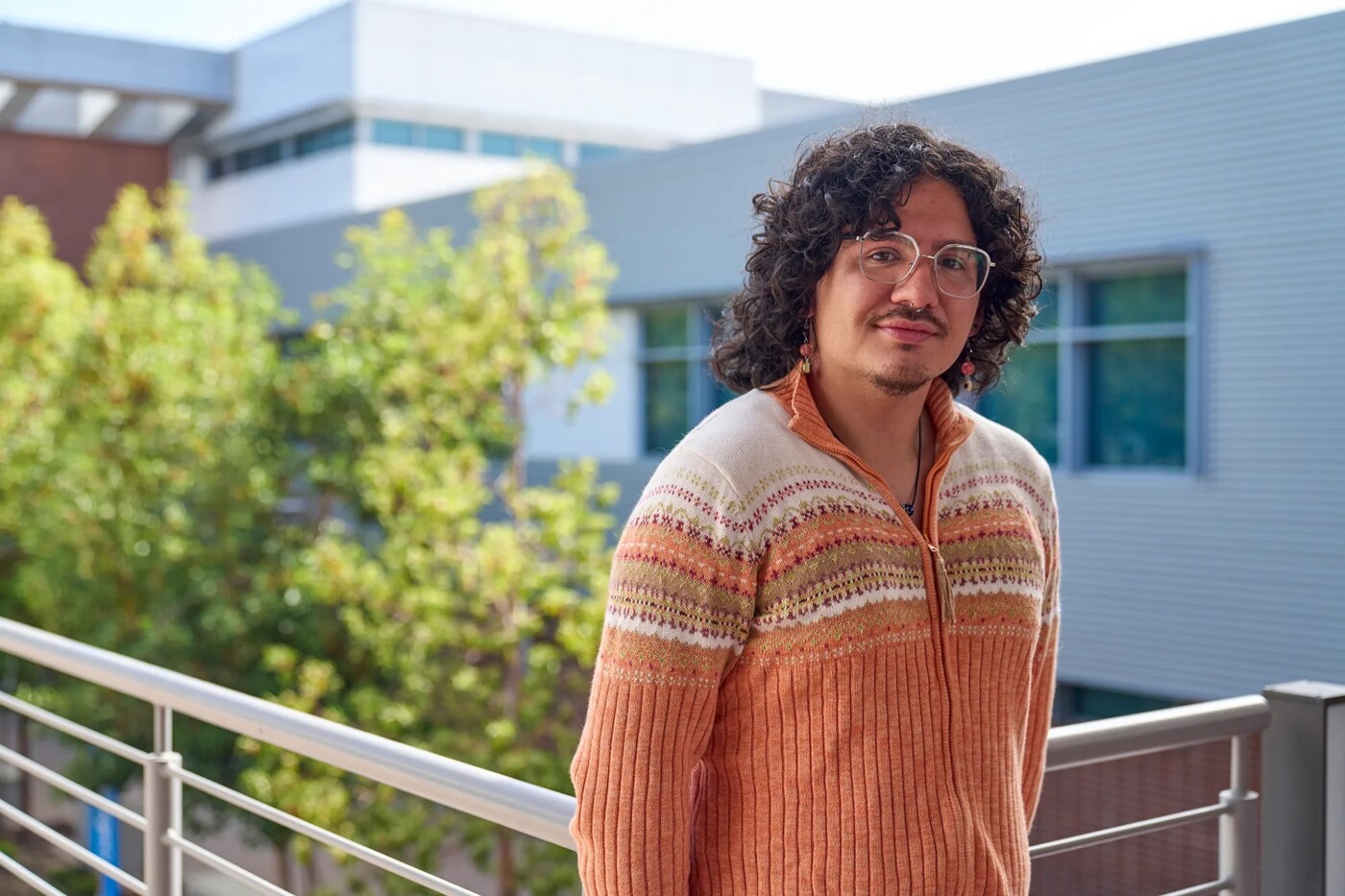Across California’s public colleges and universities, one nearly universal admissions factor — first-generation status — is still up to debate because no one can agree how to define it.
The phrase “first-generation college student” is about the education level of a students’ parents and it’s a key predictor of that student’s success in school. For years, California schools have used first-generation college status as a means to boost campus diversity, especially after voters banned affirmative action in 1996.
Following the U.S. Supreme Court’s June 29 decision to end race-conscious admissions nationwide, the term is top of mind.
It’s more than semantics: For those who lack support from family to navigate college, the term “first generation” encompasses an experience, a part of their identity, and in some cases, access to targeted state and federal services. In the Inland Empire, first-generation students can receive thousands of dollars worth of tutoring and support through high school and college — if they meet a certain definition.
But these contradicting definitions leave some students unsure what first generation means and how they should proceed.
The University of California boasts a higher percentage of first-generation students compared to the community college system, which uses a more restrictive definition of the term. The UC system defines a first-generation student as anyone whose parents did not receive a bachelor’s degree or equivalent, while the California Community College Chancellor’s Office defines it as any student whose parents never attended college at all.
Cal State, meanwhile, includes numerous definitions on its website. In one scenario, 31% of CSU students are considered first generation; according to another definition, 52% are.
It’s a national problem. In one 2018 study, researchers surveyed 7,300 students using eight different definitions for the term “first-generation student.” Using one definition, 22% of students were considered first generation; according to another definition, 77% were.
“There’s nothing really clear and centralized,” said Sarah Whitley, who serves as the vice president at the Center for First-Generation Student Success, a national nonprofit and advocacy organization. “It’s something that we’re hoping to get to, but the data is just so messy everywhere.”
Mateo Fuentes’ parents immigrated from El Salvador where his father dropped out after middle school. Fuentes’ mother enrolled at Mt. San Antonio College, a community college in the Inland Empire, after they arrived in the U.S., but she left before completing her associate degree.
Fuentes qualifies as a first-generation student under the UC definition, but not under the requirements set by the Community College Chancellor’s Office.
He said it’s an unfair distinction. Even though his mother attended college, he said she was unable to help him navigate the system when he applied to college in his senior year of high school and eventually enrolled at UC Davis.
To the Community College Chancellor’s Office, calling Fuentes a first-generation student disregards the education that his mother received: Even students who drop out before obtaining their associate degree may receive certifications, such as for many healthcare or trade professions.
In an email to CalMatters, community college spokesperson Paul Feist said any definitions that exclude associate degrees and certificates — including the UC definition — “inaccurately and unfairly assumes that such experiences are not college.”
Other students who may qualify as first-generation status never appear in the state’s data. They may not know their parents’ education, they may decline to share it, or there may be challenges in data collection.
For example, a little more than one in five enrolled students in the 2021-22 academic year did not report their parents’ education, according to the California Community College Chancellor’s Office. At the CSU system, it’s one in 10, and in the UC system, it’s about 3%.
In many cases, individual schools use their own definitions.
The UC system requires that students seeking first-generation status have parents without a four-year degree. But UC Riverside and a grant-based program at UCLA have a more expansive definition: If their parents have a degree from another country, the student still counts as first generation.
Whitley says colleges and universities in California and other states along the U.S.-Mexico border are shifting to this new definition to encompass students whose parents may not have “the cultural capital” to help their child navigate higher education.
“It’s tricky,” she said. “You don’t want to get into the business of saying, ‘Well, a degree from Canada is okay, but a degree from Nigeria is not.’”
Like UC Riverside, community colleges including El Camino College in Torrance and Mt. San Antonio College use the more beneficial definition, only considering degrees from U.S. institutions.
However, the Community College Chancellor’s Office, which controls most student data, doesn’t differentiate which country the degree came from, meaning that El Camino College and Mt. San Antonio College are incorrectly reporting the number of first-generation college students on their campuses.
Some community colleges disregard their chancellor’s office and consider the children of those who received certificates or associate degrees at community college — that is, the children of their own alumni — as first-generation students, so long as neither parent ever received more than an associate degree in their lifetime.
There’s no specific consequence for an individual college or university that defies the definition of its state leaders. However, the definition of first generation can affect admissions and the amount of funding that a school receives or allocates for these students.
While the community college system admits all students, the Cal State and UC systems are more selective. Along with grades, admissions staff conduct a holistic review of each applicant, which in the case of nearly every one of California’s selective public universities includes explicit consideration of the education level of the student’s parents or guardians.
UC spokesperson Ryan King said all UC campuses use the same definition of first-generation student for the purposes of admissions. A spokesperson for the CSU Chancellor’s Office, Amy Bentley-Smith, said that individual CSU campuses have the option to use the data that their office collects however they choose in admissions.
Students who meet the federal definition of first generation — those whose parents did not receive a bachelor’s degree — can get more than $4,600 annually of targeted support services from a federal program called TRIO as soon as they start high school, according to Victor Rojas, the director of TRIO programs affiliated with Mt. San Antonio College. Once those students enter community college, they receive fewer services, he said, worth less than $2,000.
For the 2022-23 state budget, a committee of state leaders, including current Community College Chancellor Sonya Christian, proposed aligning the community college system’s definition of first-generation student with that of the UC and federal definitions, and tying a substantial portion of a college’s state funding to the number of first-generation students on campus.
Both proposals failed to pass into law, despite receiving support from the governor and the nonpartisan Legislative Analyst’s Office.
State funding is not tied to the number of first-generation students at any campus, Feist said.
However, community college administrators pointed to two state grants, Extended Opportunity Programs and Services and the Student Equity and Achievement plans, that indirectly factor in the number of first-generation students on campus because they ask colleges to outline disadvantaged populations that they intend to serve. Unlike the federal TRIO grant, which abides by a strict definition, the state grants give colleges lots of leeway to determine how they want to define a first-generation student.
Finally, some community colleges have directed their own discretionary funds to create programs, such as the First Gen Initiative at El Camino College.

All told, a community college could use one definition of first-generation students for its local programs, another for state grants, and yet another definition for federal grants. The Community College Chancellor’s Office could then use an entirely different definition when reporting the same college’s figures to state legislators or the governor.
Many college officials who spoke to CalMatters were unaware of the Chancellor’s Office definition, or of which definition each of their departments used.
The words “first generation” have a lot of power, said Serandra Sylvers, a counselor at El Camino College. When the college updated its definition of first-generation students to include those whose parents received degrees outside of the U.S., she said students who met the new criteria told her it substantiated their feelings of “imposter syndrome.”
Unlike other boxes a student might intuitively check off when applying to colleges, such as questions about race or ethnicity, students say first-generation status is often something they learned later in life but still holds value.
Luciaceleste Garcia was a first-generation college student who knew that her parents had never gone to college and understood part of why she had been selected to participate in the TRIO program in high school.
But the phrase, “first-generation college student,” didn’t hold special meaning to her until she enrolled at Mt. San Antonio College, where she said she felt unworthy and unprepared at times.
She ultimately hopes to transfer to UCLA, in part because of investments that the university has made towards Latino first-generation students like her.
Fuentes also participated in a TRIO program in high school. He realized that he was a first-generation college student after attending a conference in high school for Latino students, and it has since become a guiding principle for him, even outside of UC Davis: Many of his friends are first-generation and he is spending this summer working with Garcia for TRIO.
Next year, he’ll graduate, but he expects that he’ll always identify as a first-generation college student given his parents’ background and education. He’s grateful to them, but knows there are certain questions he can’t ask: “I can’t just be like, ‘Hey, how do I start investing?’”
That’s a first-generation problem.
Adam Echelman covers California’s community colleges in partnership with Open Campus, a nonprofit newsroom focused on higher education.
